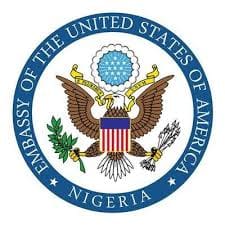The members of a US delegation visiting South Sudan have criticised the authority’s lack of transparency and “inefficient use of public revenues to meet humanitarian needs”.
On Monday, July 22, Elizabeth Campbell, Deputy Assistant Secretary of State for Population, Refugees and Migration, and Josh Black, Special
Assistant to the President and Senior Director for Multilateral Affairs at the White House National Security Council, reported on their visit to South Sudan from 15 – 19 July, 2024.
During their online press conference, Campbell indicated that the aim of their mission was to assess the humanitarian situation as well as the political, economic and security issues in the country.
She expressed her disappointment at the transitional government’s lack of progress in creating conditions conducive to peace and the inefficient use of public revenues to meet humanitarian needs.
According to Campbell, “since April 2023, more than 740,000 people have sought refuge in South Sudan from Sudan.”
“The State Department has provided over $100 million to help refugees in South Sudan during this period. The transitional government provided less than $4 million during the same period. The transitional government has also failed to take long overdue steps to reduce the costs and risks faced by aid providers.
“Recently, these costs have included the imposition of inappropriate taxes, customs duties and other charges on the UN Mission in South Sudan, UN agencies, humanitarian organisations and diplomatic missions,” she revealed.
Campbell stressed the need for the South Sudanese Government to set up a tax exemption system for humanitarian and diplomatic missions, and pointed out that 75 per cent of the South Sudanese population need humanitarian aid.
Josh Black added that the White House takes the needs of South Sudan very seriously and called for urgent reforms, such as the abolition of taxes on humanitarian aid and greater transparency in public finances.
He expressed concern about the lack of political progress and the absence of conditions for free elections under the 2018 peace agreement.
Black also spoke of setbacks, such as the proposed National Security Service Bill allowing arrests without a warrant, which he said would violate human rights and endanger humanitarian workers.
He concluded by saying that South Sudanese leaders should act quickly to avoid another major crisis, and that the US would continue to support those who put the needs of the people first and are committed to democratic governance.
AC/Sf/fss/GIK/APA


